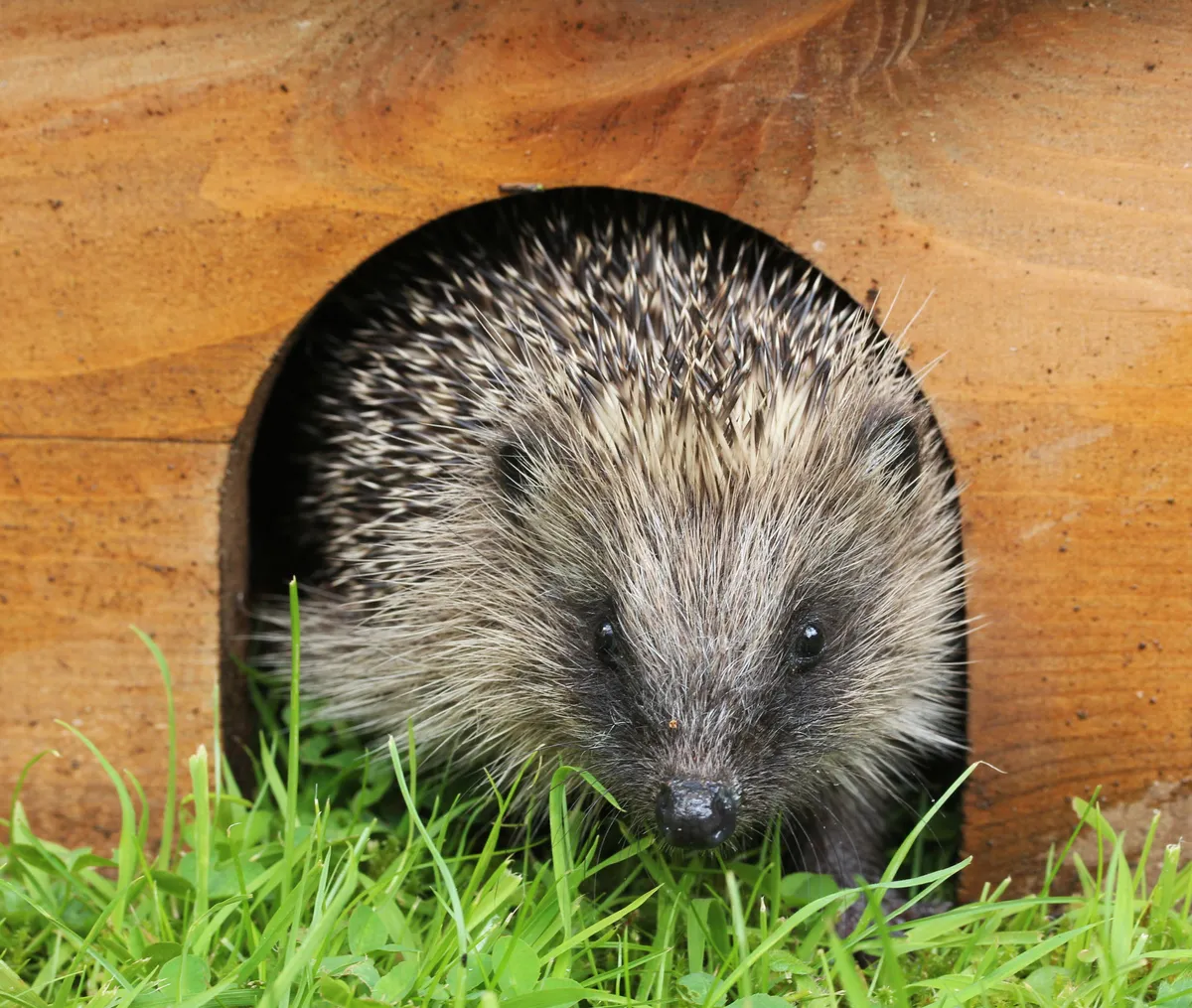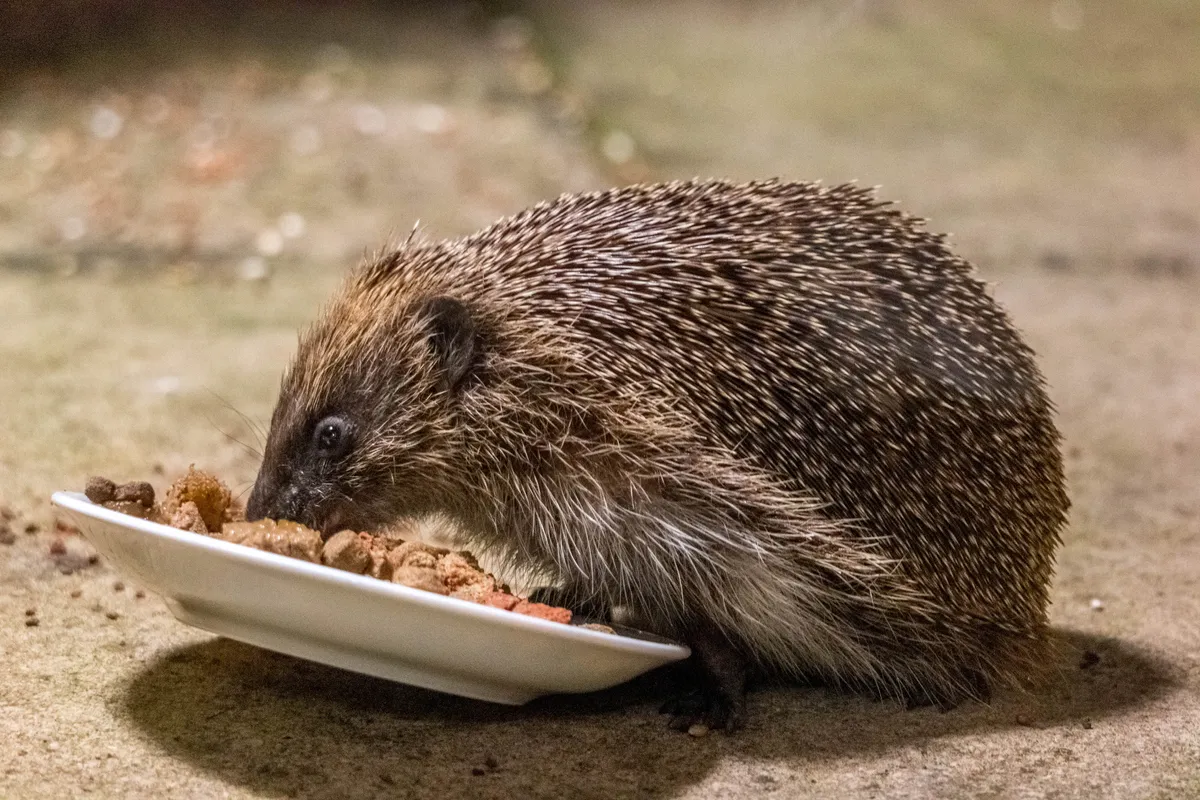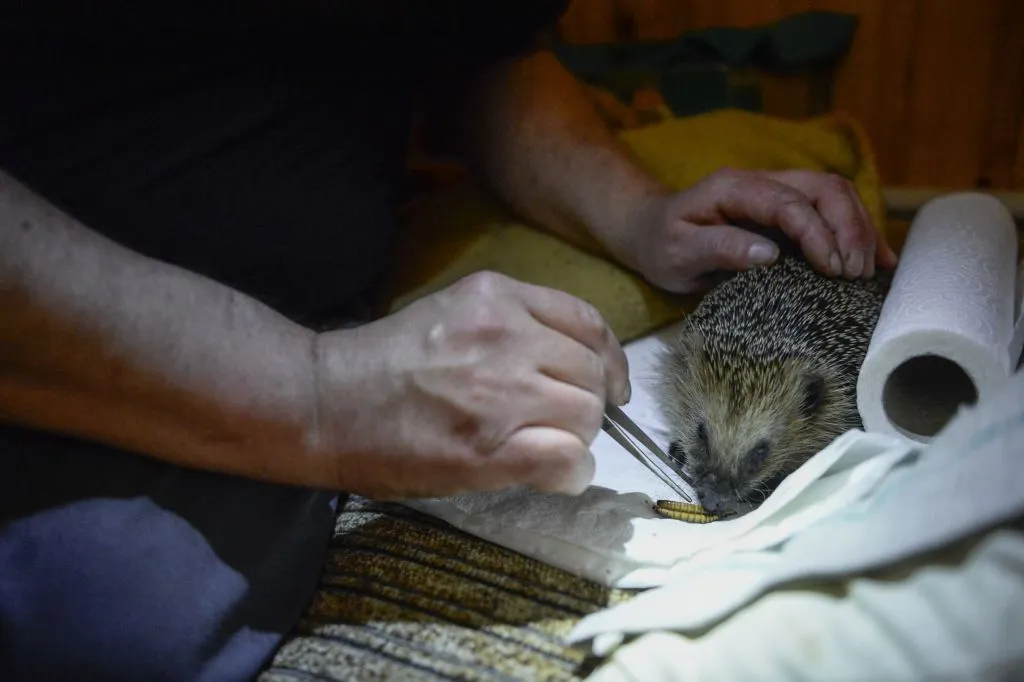Why are you championing the hedgehog?
I love hedgehogs. I always have. Ever since I saw my first one through the kitchen doors at my parents’ house in Sussex, I have been enchanted and mesmerised by these little creatures inhabiting the British wild.
My encounter reminded me that you don’t have to go overseas to see marvellous species. Over the years, I have made several wildlife films about hedgehogs, and have spent many nights waiting for them to appear.
Sadly, I haven’t seen one in my London garden, but I have cut small holes in the fence to give them access.

What makes them special?
Hedgehogs aren’t obviously beautiful animals, with their sharp spines, little snouts and beady eyes, but they have an enduring appeal. This striking species is a quintessential part of the UK countryside.
They are mysterious and have a romanticism about them, because we rarely see the secretive little fellows – they appear from the undergrowth as if by magic.
Hedgehogs are very docile creatures and should only be handled when necessary.
What are hedgehogs doing at this time of year?
They usually hibernate between November and mid-March, and must have enough fat reserves to survive. To help them as they emerge from hibernation, make a hedgehog home in your garden, put out a dish of clean water, and regularly provide dog or cat food (do not feed them dairy products as they are lactose intolerant).

It’s also really important to check bonfires before you light them, and to take care when forking over your compost heap, in case a hedgehog is inside.
Log piles, hedges, long grass, piles of dead leaves, and shrubs with branches that reach the ground are all ideal places for these prickly guests to make their nests.
Why are they in decline in the UK?
There are many reasons. The widespread use of pesticides reduces the numbers of insects that hedgehogs feed on, and slug pellets and insecticides can harm them, too.
Intensive farming practices are reducing their habitat, as is the destruction of British hedgerows, woodlands and grasslands.
New developments, garden fencing and walls limit the area of connected land available to these mammals, and the trend for concrete and decking in suburban gardens reduces their foraging areas. Plus, an increase in road traffic is, unfortunately, causing more hedgehog deaths.
What should you do if you find one?
Hedgehogs are nocturnal, so any seen out during the day are likely to be in trouble. If it seems healthy and is moving around purposefully, leave it, but if it looks underweight or distressed put it on a hot-water bottle that’s been wrapped in a thick towel, and place it gently in a deep box with air holes.
Offer some water, then leave the box somewhere dark and quiet, and ring your local hedgehog rescue centre for advice. Hedgehogs are very docile creatures and should only be handled when necessary – remember to wear thick gloves!

The expert view
The State of Britain's Hedgehogs 2018 showed how urban numbers are down by 30 per cent, rural are down by over 50 per cent, just since the turn of the century. The urban data suggests some levellling off, which is exciting, as it is in this environment that the Hedgehog Street campaign has concentrated its attention. It is now beginning to focus on how best we can encourage farmers to manage their land with hedgehogs in mind.
Hugh Warwick runs HedgeOX in Oxfordshire
Ben Fogle is a patron of the British Hedgehog Preservation Society. He also climbed the world’s tallest mountain in April 2018 and is co-author of a new book, Up: My Life’s Journey to the Top of Everest (William Collins).
This article originally appeared in BBC Wildlife. Take a look inside the current issue and find out how to subscribe.

